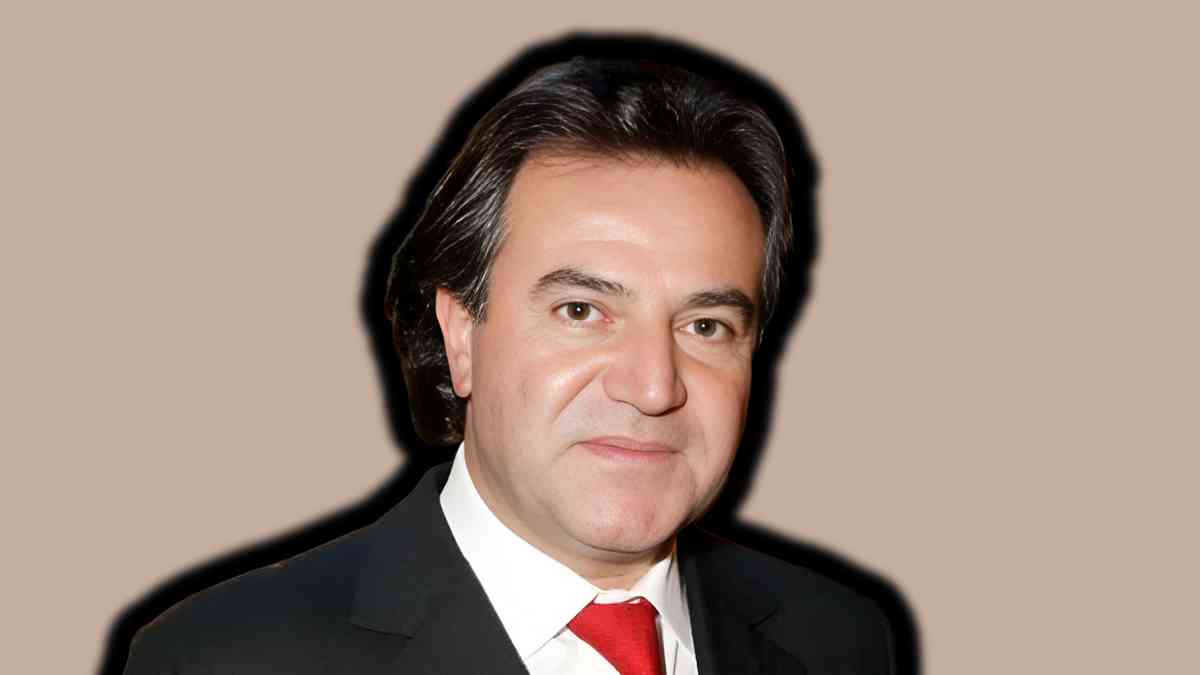Simon Halabi: The Rise, Fall, and Legal Battles of a British Property Tycoon

Simon Halabi is a name that once echoed through the grand corridors of the British property market. A Syrian-born businessman who rose to the upper echelons of wealth, power, and prestige, Halabi built a real estate empire that included some of London’s most sought-after landmarks. At the height of his career, he was counted among the richest individuals in the UK, with assets stretching across the capital and beyond. However, his story is not just about staggering success; it is also one of dramatic decline, legal controversies, and a battle to restore his name and position in the business world.
Early Life and Background
Born Bassam Simon Halabi in August 1958, Halabi’s roots trace back to Syria, where his father was already a successful businessman. The family’s affluence provided him with a strong foundation and connections, allowing him to venture into opportunities far beyond his homeland. Moving to the United Kingdom, Halabi began laying the groundwork for a career that would transform him into one of London’s most influential property developers.
His early business interests were varied, but it was real estate that quickly became the core of his empire. Leveraging both inherited wealth and strategic investments, Halabi began acquiring prime properties in some of the most prestigious postcodes in the capital.
Building a Property Empire
By the mid-2000s, Simon Halabi had established himself as a dominant force in the UK property market. His portfolio included landmark buildings such as the London headquarters of JP Morgan, Aviva, and Old Mutual. These were not just commercial holdings but symbols of his position in the high-stakes world of real estate.
One of his most notable involvements was with The Shard project — a skyscraper that has since become one of London’s most recognisable architectural achievements. His investments extended to luxurious estates, including Mentmore Towers in Buckinghamshire, a Grade I-listed country house with historical significance.
Halabi’s approach combined strategic location selection with ambitious development plans, often targeting properties that promised long-term value. By 2007, his fortune was estimated in the billions, placing him among the UK’s wealthiest individuals.
The 2008 Financial Crisis and Collapse
While his empire appeared unshakable, the global financial crisis of 2008 exposed vulnerabilities in even the strongest portfolios. Halabi’s property holdings, many of which were highly leveraged, suffered significant value losses as markets crashed.
In 2010, he faced a devastating blow when he was declared bankrupt over a £56.3 million loan that he could not repay. Administrators moved in, taking control of many of his prized assets. The crash not only stripped him of much of his wealth but also reshaped his public image, transforming him from a symbol of success into an example of how quickly fortunes can turn in volatile markets.
Legal Issues and Controversies
The decline of Halabi’s financial empire was compounded by legal troubles that have followed him for decades. In 1998, a French court convicted him of violently raping a woman. Although the sentence was suspended, the conviction placed him on France’s sex offender register — a fact that would resurface years later, attracting widespread media attention.
In subsequent years, Halabi faced accusations of failing to comply with legal notification rules for convicted sex offenders. These included allegations that he travelled abroad without informing the relevant authorities. However, in March 2024, he was found not guilty of these charges due to insufficient evidence. Despite the acquittal, the publicity surrounding these cases has remained a significant aspect of his public narrative.
Personal Life and Tragedy
Away from the headlines, Simon Halabi’s personal life has been marked by both privilege and tragedy. He was married to Urte, a Lithuanian national, and together they had two sons. The family enjoyed a lifestyle that reflected Halabi’s wealth, but they also endured profound loss when their young son Samuel drowned at the age of two. This personal tragedy deeply affected Halabi and is believed to have left an enduring emotional impact.
Those close to him often describe a man who, despite his wealth, has faced struggles that money could not resolve. His resilience in navigating both business and personal challenges speaks to a complex character who is more than just his financial achievements and public controversies.
A Legal Victory in Jersey
In recent years, Halabi has been involved in a landmark legal case in Jersey concerning the Ironzar II Trust. The dispute revolved around trustee liens and the priority of claims between trustees and executors. Halabi emerged victorious, with the court ruling in his favour — a decision that could influence future trust law interpretations in the jurisdiction.
This legal win not only restored some of his professional credibility but also reinforced his reputation as a determined and capable businessman willing to fight for his interests, even in complex legal environments.
Business Philosophy and Approach
Throughout his career, Halabi’s strategy has been characterised by bold moves and a willingness to take calculated risks. His early successes were built on identifying undervalued or high-potential properties and developing them into premium assets. He had a talent for spotting prime locations before they became the focus of market attention.
However, the same risk-taking approach that fuelled his rise also contributed to his downfall when the market turned against him. Heavy reliance on debt financing left his empire vulnerable during the 2008 crisis, a lesson that underscores the delicate balance between ambition and caution in high-value real estate investing.
Public Image and Media Portrayal
Simon Halabi’s public image has been a study in contrasts. At his peak, he was celebrated as a visionary developer with an enviable lifestyle. Media coverage showcased his successes, high-profile deals, and luxurious properties. After the financial crash and legal controversies, however, the tone shifted dramatically.
Headlines began to focus on bankruptcy proceedings, court cases, and the collapse of his once-glittering empire. For many, Halabi became a cautionary tale about the dangers of overleveraging and the fragility of public reputation. Yet, for others, his resilience and recent legal victories highlight a man unwilling to fade quietly into obscurity.
Lessons from the Halabi Story
The journey of Simon Halabi offers valuable insights for entrepreneurs, investors, and business leaders. His story underscores the importance of diversification, prudent financial management, and the need to anticipate market downturns. It also demonstrates how personal and legal challenges can intersect with professional life, influencing public perception and business opportunities.
Importantly, Halabi’s trajectory shows that while setbacks — even catastrophic ones — can derail a career, determination and strategic action can still pave the way for comebacks. His ongoing legal battles and selective business engagements suggest that his story is far from over.
Future Prospects
As of recent years, Halabi’s public profile has been quieter than during his peak, but his win in the Jersey trust case indicates that he remains active in protecting his financial interests. Whether he will return to large-scale property development remains to be seen, but his experience, connections, and proven ability to navigate high-value transactions keep that possibility open.
It is also likely that Halabi will continue to be a figure of interest in both the business and legal communities, particularly given the precedents set by his court cases. For those studying the interplay between wealth, law, and public image, his life remains a compelling case study.
Conclusion
Simon Halabi’s life is a narrative of ambition, risk, and resilience. From building one of the most impressive property portfolios in the UK to losing much of it in the wake of a global financial crisis, and from facing legal controversies to securing significant court victories, his journey reflects the unpredictable nature of business and personal fortune.
While his reputation has been shaped by both achievements and controversies, Halabi’s ability to remain relevant in legal and financial circles speaks to a resilience that is rare even among the world’s wealthiest individuals. Whether viewed as a cautionary tale or a testament to perseverance, the story of Simon Halabi is undeniably one of the most fascinating in modern British business history.



